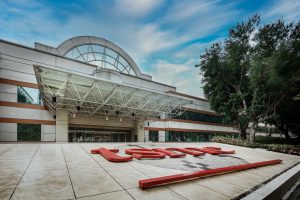Popular Keywords
- About Us
-
Research Report
Research Directory
Semiconductors
LED
Consumer Electronics
Emerging Technologies
- Selected Topics
- Membership
- Price Trends
- Press Center
- News
- Events
- Contact Us
CoWoS
News

[News] Chinese Rivals Said to Recruit Samsung’s Advanced Packaging Business Leader after the Unit Disbanded
Amid the AI boom driving a surge in demand for advanced packaging, Samsung Electronics announced in March its ambition to achieve record-high revenue for the business this year, aiming to surpass the USD 100 million mark. The company, which is eager to catch up with TSMC not only on the foundry bu...
News

[News] TSMC’s Expansion beyond 2nm Taking Shape? Angstrom-Class Fabs Possibly in Southern Taiwan
According to sources cited in a report from Commercial Times, in response to the global increase in chip orders and rapid AI development, TSMC is actively seeking available land to keep its most advanced process technologies in Taiwan. Currently, TSMC has already planned three 2nm fabs at the N...
News

[News] Samsung to Intensify Efforts for Capturing Intel’s Advanced Packaging Orders Shifting from TSMC
According to a report from The Chosun Daily, major tech companies like NVIDIA are considering using Intel's foundry services (IFS) as an alternative due to TSMC's packaging capacity shortages. While packaging is a core competency for semiconductor foundries, Samsung, which is facing difficulties in ...
News

[News] TSMC Assigns CoW Order for the First Time, Reportedly to OSAT Provider SPIL
Despite recent issues with NVIDIA's GB200 shipments, the market remains optimistic about long-term AI demand, and CoWoS capacity continues to be in short supply. According to a report from MoneyDJ, TSMC will assign orders of the initial stage of chip stacking in CoWoS packaging, Chip on Wafer (Co...
News

[News] Intel and NVIDIA’s New Platform Orders Rolling Out, TSMC Unaffected by Market Turbulence
According to a report from Commercial Times, despite ongoing turbulence in the semiconductor industry, including Intel's capital expenditure cuts and reported bottlenecks in NVIDIA's B-series GPU, TSMC's leading position in the industry may remain unshaken. The sources cited in the report note...
- Page 5
- 18 page(s)
- 87 result(s)





